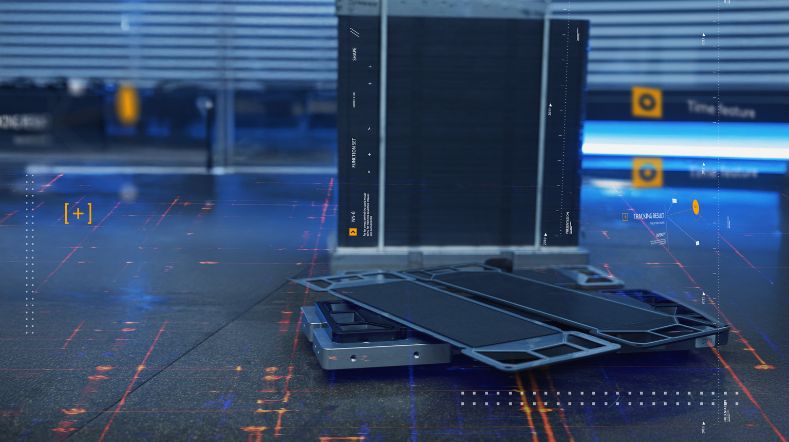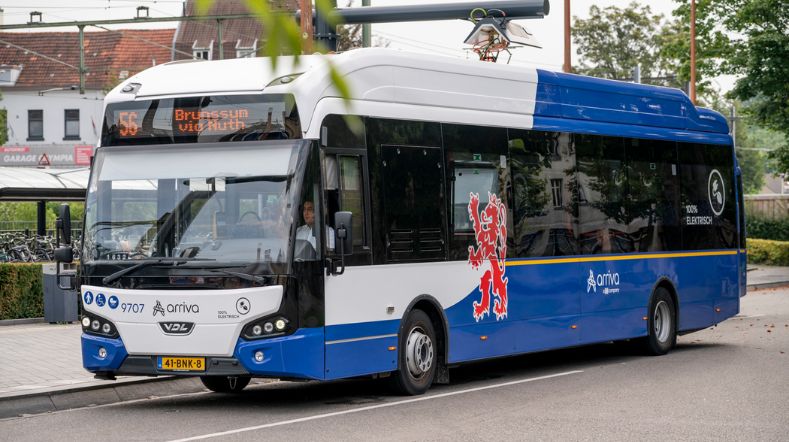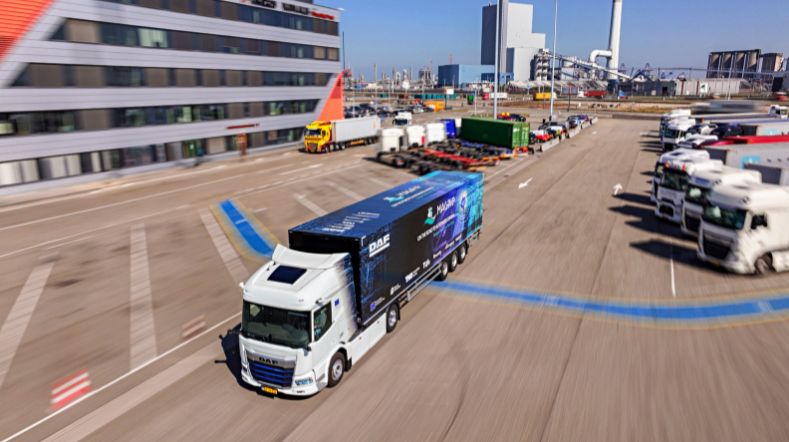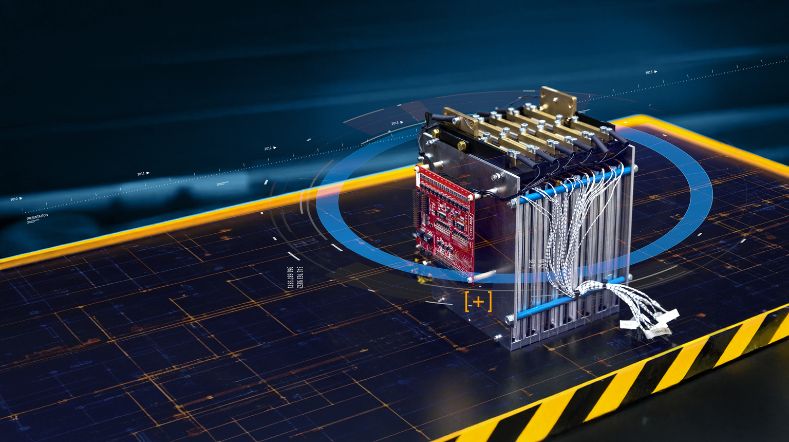
The fuel cell as an interesting alternative
80% reduction in greenhouse gas emissions from road transport. The transport sector has a lot of work to do between now and 2050. At the same time, transport operators want to get serious about automated driving and sustainable mobility. Using innovative solutions, TNO is taking the lead in the transition and helping to achieve these ambitions.
Sustainable mobility
To meet climate targets and accelerate the transition towards more sustainable transport, other clean alternatives such as hydrogen are needed alongside battery-electric solutions. The fuel cell is a promising solution when electric power alone cannot be optimally deployed. TNO Mobility and Built Environment is using its long-standing expertise in hydrogen, drive technology, and engine development to further develop and scale up this fuel cell technology.
Climate challenges in the transport sector
In line with the Paris Climate Agreement, EU Member States have agreed to reduce their greenhouse gas emissions by at least 55% by 2030 compared to 1990 levels (Green Deal). Moreover, the EU aims to be carbon neutral by 2050. The new carbon legislation for heavy road vehicles requires emissions to be reduced by 45% from 2019 levels by 2030 and by as much as 90% by 2040.
While battery-electric drives are considered the main alternative to fossil fuels, other solutions are also needed. For example, battery-electric engines are not always suitable for transporting heavy goods over long distances by road and water.
To nevertheless ensure that all means of transport are powered by renewable energy by 2050, it is important to bet on a mix of sustainable technologies and energy carriers. This makes hydrogen an interesting alternative alongside biofuels and synthetic fuels for (heavy) road, water, and off-road transport.
Biofuels and synthetic fuels help reduce carbon emissions from road traffic. For lorry manufacturers, however, these alternatives do not count towards the European ‘tank to wheel’ carbon standards that apply to new sales.
Our vision
This makes hydrogen, which contains no carbon and therefore emits no carbon dioxide, an excellent alternative for making heavy transport more sustainable. A fuel cell converts hydrogen into electricity and an internal combustion engine converts hydrogen into power for propulsion. In both cases, only water and negligible amounts of nitrogen oxide are released.
Our country has a large market share and stake in the European lorry sector. Building on the Netherlands’ knowledge and leading position in fuel cells and hydrogen combustion engines, we can secure this share for the future.
Hydrogen and fuel cells can be a game changer not only in heavy road transport, but also in shipping. Innovation processes in the automotive sector are generally faster than in the maritime world. Inland and coastal shipping in the Netherlands in particular can benefit from this technological lead.
In addition, the hydrogen fuel cell could be used in non-road mobile machinery as a clean alternative to stationary diesel generators and in earthmoving and agricultural machinery, with significant local environmental benefits.
Our solutions
The fuel cell is an interesting alternative powertrain to complement battery driving to avoid dependence on one type of technology. The fuel cell is silent, produces no emissions, and is highly efficient at converting hydrogen into electricity. At TNO, we are researching how to extend the life of fuel cells. This is important because of their high current acquisition cost. We are carrying out this research for the existing PEM technology, but also for a control platform for a new technology called SOFC.
The Hydrogen Fuel Cells group in TNO concentrates on algorithms for state-of-health and state-of-function estimation of the H2 Fuel Cell and model-based calibration and validation of the best possible fuel cell - battery combination for a specific use case, providing a robust, efficient and reliable powertrain with the lowest possible TCO.
Various test setups are available in the TNO laboratories:
- electrical cyclers of various sizes for electrical testing of cells and stacks
- climatic chambers for testing at different temperatures and humidity levels
- automated testing systems with flexibility in terms of possible profiles
- Matlab, Simulink coupling for the vehicle, battery, fuel cell toolchain.
Health monitoring of fuel cells is realised via state of health (online impedance characterisation), state of function (to support energy management) and thermal state (temperature distribution) estimation algorithms.
Testing methods on component level range from Functional verification, Hardware-in-the-loop (HiL), Technology evaluation to Accelerated ageing/endurance. Testing methods on vehicle level range from vehicle-level verification, Vehicle-in-the-Loop (ViL) to Test-track (e.g. UITP SORT). Assessment methodology (KPIs, models) are developed for field deployment evaluation on vehicle and fleet level.
The Equivalent Cost Minimisation Schedule (ECMS) method is used for energy management and system optimisation. This system-level model is embedded in the TNO framework.
Unique testing facilities
At TNO’s Innovation Centre for Sustainable Powertrains (ICSP) in Helmond, the Netherlands, we do a lot of research into fuel cells and battery-electric powertrains. Our fuel cell and battery projects focus less on the development of batteries and fuel cells themselves and more on extending their lifetimes and optimising their use for different mobility applications.
TNO has dedicated testing facilities for heavy-duty lorries and marine engines. These facilities are equipped with hydrogen infrastructure, offer a range of cooling options, and allow for fuel cells to be linked to battery systems. Finally, TNO has a climate and pressure chamber where we can simulate the working conditions of a lorry at extreme temperatures and high altitudes in the mountains.
Green Transport Delta
To further develop hydrogen for use in lorries, barges, and mobile power units, TNO is working with partners in the Green Transport Delta Hydrogen (GTD-H) project. In close collaboration with Dutch industry partners and other knowledge institutes, TNO is working on the realisation of prototypes within this project, taking into account laws and regulations and other market-specific factors. This is how TNO is helping its consortium partners achieve a leading position.
TNO is keen to connect with companies, agencies, and public authorities aiming to use hydrogen to accelerate the sustainable future of transport and logistics.
Get inspired
Fuel cells crucial for decarbonising heavy-duty transport and non-road machinery


Health of electric bus batteries now measurable on-site via charger


Demonstrations of automated driving and charging for logistics at Maasvlakte


Transition co2 neutral mobility 2050

TNO accelerates electrification of logistics and construction through a deeper understanding of batteries


